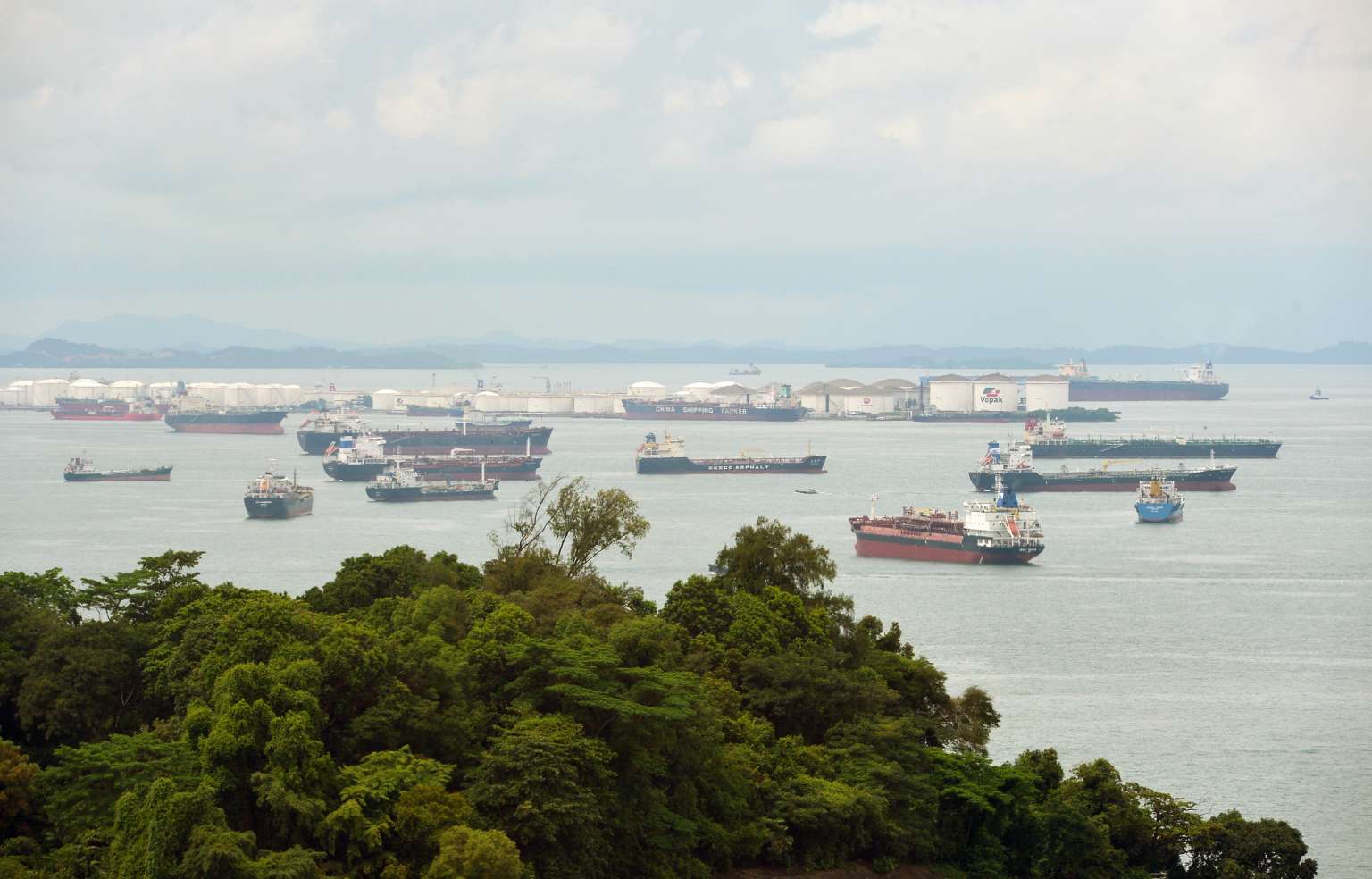2 new digital platforms in the works to help transform Singapore's maritime industry: Khaw Boon Wan
Sign up now: Get ST's newsletters delivered to your inbox

Oil tankers congregate in front of Pulau Sebarok, an oil storage and refueling port on one of the southern islands of Singapore.
PHOTO: ST FILE
Jacqueline Woo
Follow topic:
SINGAPORE - Two new digital platforms are being developed to help Singapore's maritime industry adapt to a future where digitalisation is disrupting and transforming global transportation and supply chains, Mr Khaw Boon Wan, Coordinating Minister for Infrastructure, said on Tuesday (April 25).
"The lines between shipping, e-commerce and logistics are blurring," said Mr Khaw. "For example, Amazon will soon be launching its own shipping and logistics operations. What does this spell for shipping companies when e-retail giants have in-house shipping operations? Freight forwarders too would have noticed the Maersk and CMA CGM partnerships with Alibaba to allow shippers to book space on container ships online."
He said shifting shipping alliances, changing distribution methods, and evolving global trade routes may mean it is more important to be part of an interconnected port network than to compete to be the biggest hub port.
"Rather than seeing each other as competitors, we may have to learn to collaborate more with one another," said Mr Khaw, who was speaking of Sea Asia conference here.
In response to these global trends, Mr Khaw, who is also Minister of Transport, highlighted the development of the next-generation National Trade Platform, which will be an integrated, one-stop digital platform connecting shippers, shipping lines, the port, government agencies and logistics players.
He said also that the Maritime and Port Authority of Singapore (MPA) is developing the Maritime Single Window, which will provide a single portal access to submit documents for port clearance.
Said Mr Khaw: "These initiatives will deepen collaboration along supply chains, and strengthen linkages within the trade, shipping and logistics eco-systems in Singapore. They will enable Singapore to play a bigger role in new areas such as e-fulfilment and multi-modal connectivity."
He added the Government is also taking steps to help companies in Singapore develop capabilities to succeed in the future landscape.
The MPA's enhanced Maritime Cluster Fund, for example, now provides more co-funding for companies that want to use technology to optimise their processes or transform their business model.
Mr Khaw also stressed it is key to prepare Singaporeans for this transformation, as the jobs of tomorrow will be "more knowledge-intensive, and require new skill-sets and mind-sets".
"We have to ensure that our maritime manpower is equipped to handle transformation for some of them, to drive the transformation.
To this end, the MPA has enhanced co-funding for training in areas such as data analytics and new maritime technologies, which will reinforce the quality of the country's maritime workforce.
Singapore, which stands among the leading maritime capitals globally, has been taking steps to strengthen its position as the world's largest trans-shipment hub, including building a new mega port in Tuas.
The maritime sector contributes about 7 per cent to Singapore's GDP and employs more than 170,000 workers.
Sea Asia at Marina Bay Sands Expo and Convention Centre is Asia's largest maritime and offshore conference and exhibition that runs until Thursday (April 27). It is held every other year in conjunction with the Singapore Maritime Week.

